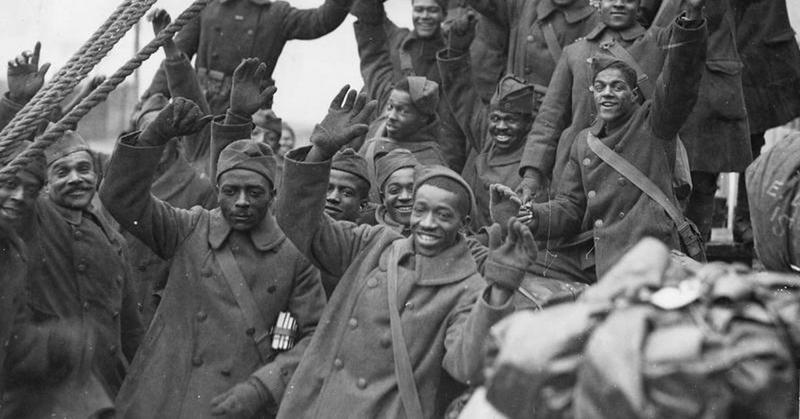Who Were The Harlem Hellfighters?
By | February 23, 2022

The Harlem Hellfighters, known officially as the 369th Infantry Regiment, were some of the most fearsome fighters of World War I, serving 191 days in battle, more than any other American regiment in the war. The regiment was originally formed as a part of the New York Army National Guard in 1913, a time when black Americans were often denied entry into the military. However, at the outbreak of World War I, the United States needed as many soldiers as they could get, and many black men saw service as an opportunity to not only protect democracy but also gain respect within their own country.
Still, the United States military was deeply segregated, and so the 369th Infantry became one of America's first all-black fighting units sent into the American Expeditionary Forces. Rather than stay within the American forces, however, they were dispatched to the French after many white soldiers refused to fight alongside them. A colonel of the American Expeditionary Forces even sent a warning about their so-called "inferiority," but the French welcomed the help with open arms, and the soldiers of the 369th were relieved to finally be treated as equals. They were also credited with bringing jazz to France with their regiment band. The 369th fought ferociously alongside the French allies, and their "take no prisoners" approach earned them the nickname "Harlem Hellfighters" from their German adversaries.

In the wee morning hours of March 15, 1918, the regiment was stationed a little over 100 miles outside of Paris on the front lines, with Privates Henry Johnson and Needham Roberts on watch at a listening post, when they heard a strange clicking sound that they correctly suspected to be German troops cutting wires to gain entry into their camp. They fired off an illumination rocket, exposing the German forces, and all hell broke loose.
After some gunfire, Roberts was injured by a thrown grenade, leaving Johnson to fend for himself. He unloaded his rifle on the encroaching raiders, but in the mayhem, he accidentally reloaded with French ammunition, which didn't work in his American-issued weapon. Still, he fought off soldier after soldier, first with grenades, then with the butt of his rifle, and finally with a bolo knife, not only defending the line but preventing the Germans from taking the wounded Roberts captive. When backup finally arrived and dawn broke, four bodies of German soldiers and the disregarded ammunition, weapons, and other artifacts of another 20 who were either injured or simply fled littered the ground. Johnson suffered 21 wounds but survived.

The Harlem Hellfighters went on to capture a German-occupied town on September 18 that year, but in doing so, they lost 600 men, bringing their numbers down to just over 150. That same month, they captured a tactically significant railroad junction on behalf of the French but lost more men and so were finally relieved from duty. Altogether, they lost 1,500 men, the largest human loss of any American regiment during World War I.
Despite this, they received little recognition within the United States apart from their inclusion in the victory parade, and their service did little to change their position in the early 20th century's social landscape. The 369th were the first Americans in history to receive the Croix de Guerre, a high French military honor, but despite his heroism, Johnson did not receive veterans' benefits after returning to the United States, leaving him with serious medical problems. He died 10 years later, penniless and with no respect from the local military community. It wasn't until 2015 that President Obama posthumously awarded Johnson the Medal of Honor, the nation's highest military award for valor, for his courage.

